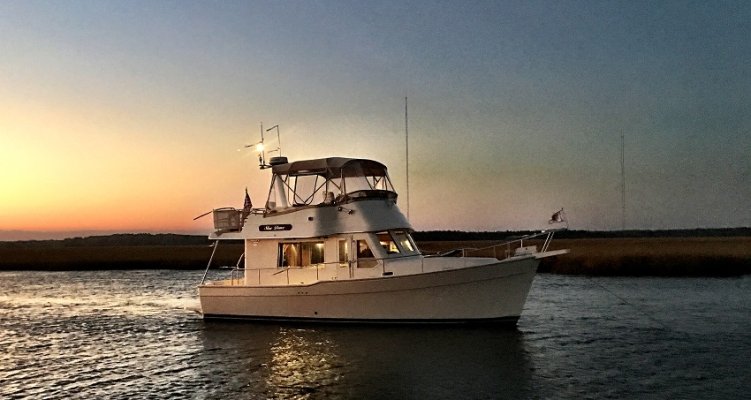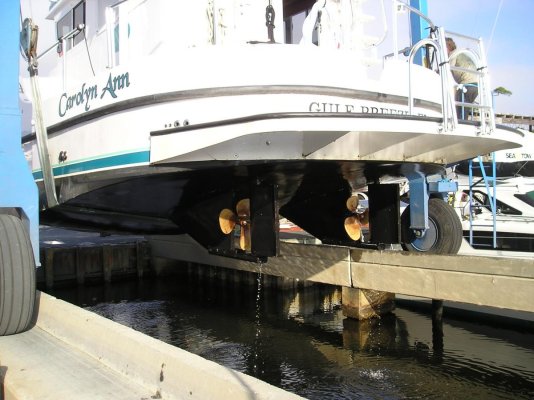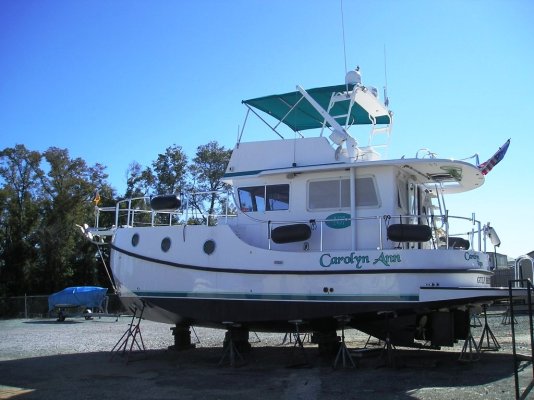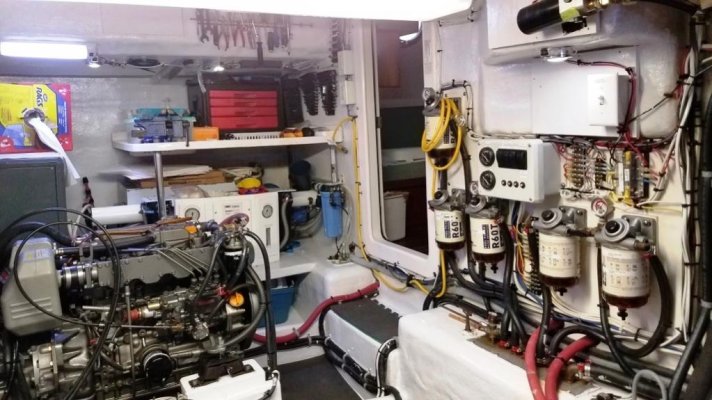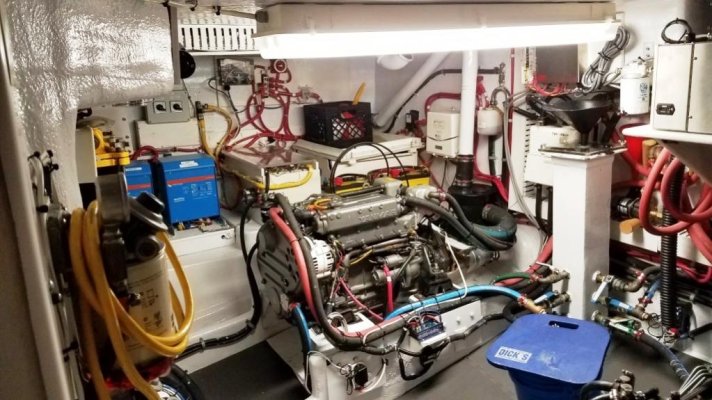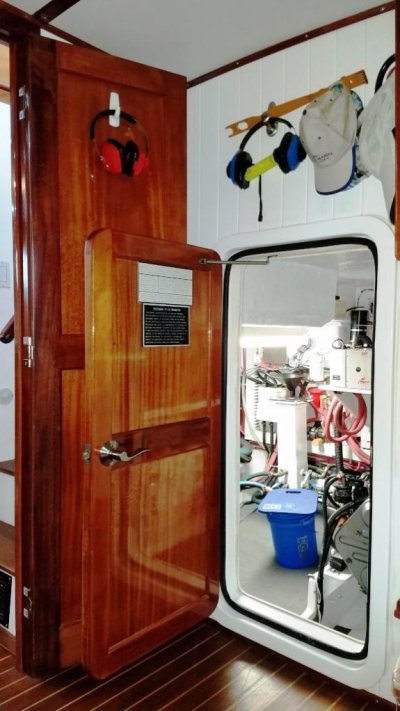I can comment from being a Mainship 400, single, and a lot of time behind both single and twin engines boats and planes (seeing how some one mentioned planes)
To put the airplane thing to bed, a twin engine plane IS more expensive to operate than it's cousin single, but not double and for the most part only goes 10 to 20% faster..... BUT if one fails, it's a minor inconvenience, not a major emergency. Out of some 20 planes that Ive had over the years, I've had 4 engine failures... all in singles. So, I like twins.
As for the boats, Ive had a number of both singles and twins and my current Mainship is a single. Love the boat, but would ABSOLUTELY have a twin next time.
The old "singles are fool proof and super reliable" just is a bunch of poppycock. There's NO way you can guarantee your single just won't up and croak leaving your stranded to the elements. I've had that happen a number of times over the years, and often some little unpredictable thing that you just can't prevent against.
So the issues regarding an engine failure are significant with a single, and minor with the twin. And yes, twins probably have a double chance of a failure.
I'm convince that if operated at hull speed, the difference in operating cost of the single vs twin is imperceptible.
And the twin you have the option of going fast. And there's a number of reasons for doing so. Just to improve the ride in many cases, especially and irritating quartering fallowing sea just a tad over your single cruise speed. HUGE advantage for the twin. Another is to beat a closing time after unexpected delays, or get thru two areas of low tide without waiting another day.
And the twin wins, hands down, on maneuverability. For all you die hard "can to anything in a single" crowd, show me how to back into a slip without finger docket with a stiff crosswind. Just ain't gonna be pretty.
The maintenance won't be double in the twin. Might be close but there's a scale of economy when doing 2 vs. 1. The oil change on the twin does not take twice as long as the single. And you might get a break on ordering parts in quantity, but a moot point for the most part.
And, I could argue just as strong for a single.
But today, I like twins.


